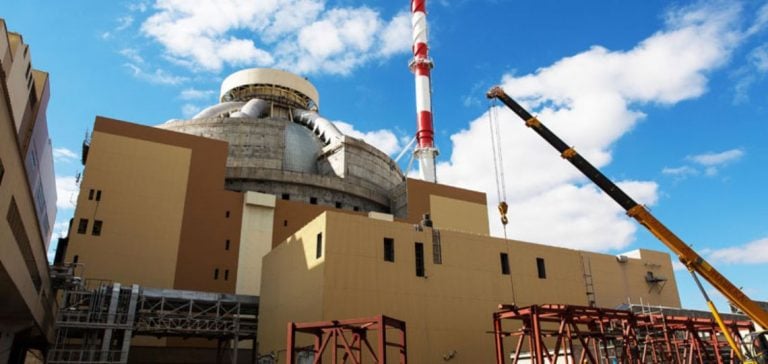“The interconnections between the Western and Russian nuclear industries remain a major concern in the current context of economic sanctions.
A recent report on the state of the global nuclear industry points out that this interdependence has enabled Russia to protect itself against the effects of sanctions imposed by Europe following the invasion of Ukraine in 2022.
While some European countries are seeking to diversify their nuclear fuel supply sources, the economic and technical realities make this a complex and costly transition.
Persistent dependence
The annual report on the global nuclear industry reveals that several European Union countries, which operate Russian-designed VVER reactors, continue to rely on Russian fuel.
Despite efforts to turn to alternatives, such as those proposed by the American company Westinghouse Electric, many countries built up stocks of Russian fuel last year, increasing their imports.
This situation highlights the difficulty of reducing dependence on Russia, especially when Western companies are dependent on the construction of new reactors by Rosatom, the Russian state-owned company.
The implications of this interdependence are significant.
The report shows that companies such as Arabelle, a subsidiary of the French utility EDF, have no foreign customers for their turbines other than Rosatom.
Likewise, key technologies such as instrumentation and control for nuclear power plants are supplied by companies like Siemens Energy and Framatome.
These industrial and commercial interrelationships partly explain Europe’s reluctance to impose sanctions on the nuclear sector.
The costs of disconnection
The report also points out that any attempt to reduce or eliminate reliance on natural uranium, conversion and enrichment services is likely to result in increased costs.
This economic reality weighs heavily on political decisions, as governments must balance energy security with the imperatives of decarbonization and energy transition.
The complexity of the global nuclear supply chain makes a rapid transition to viable alternatives difficult.
At the same time, electricity generation from nuclear power rose slightly by 2.2% last year, to 2,602 net terawatt-hours.
However, nuclear power’s share of gross commercial electricity generation fell slightly, from 9.18% to 9.15%.
This trend underlines the challenges facing the nuclear industry, including the need to modernize infrastructure and attract new investment.
Future prospects
The outlook for the global nuclear industry is marked by growing uncertainty.
While some countries seek to strengthen their energy autonomy, others continue to rely on partnerships with Russia.
This dynamic could influence investment decisions and long-term development strategies.
Companies have to navigate in a complex environment, where geopolitical and economic considerations are intertwined.
“The interdependence between Russia and its Western partners remains significant,” the report stresses, highlighting the challenges this poses for European energy policy.
Industry players therefore need to consider innovative solutions to diversify their sources of supply, while maintaining the economic viability of their operations.
The transition to advanced nuclear technologies and strategic partnerships could offer opportunities to reduce dependence on Russian fuels.
The challenges of decarbonization and energy security will continue to shape the landscape of the nuclear industry.
Companies must remain vigilant and adaptable in the face of an ever-changing environment, while seeking to balance economic and environmental requirements.”





















